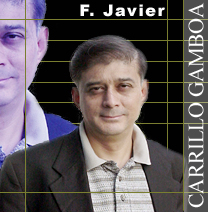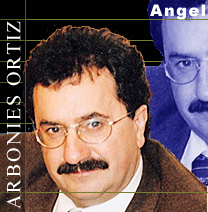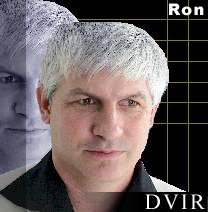 |
[E100 Barcelona Alert #3] - Knowledge
Cities Observatory (KC) -
4 Dialogue Themes
Dear E100:
En route to Barcelona...
Some of you may have taken the time to review the preliminary program.
Those who have not, PLEASE click HERE
for the latest version!

What may not yet be clear is the
innovative initiative to establish a Knowledge Cities Observatory (KCO).
It was referenced in a previous E100 Alert (click
here). In fact, if you haven't been keeping track of these E100
Alerts, they are available on our website - www.entovation.com/mailing/index.htm!
The ENTOVATION Group/Alliance (EG/A) has decided to fully investigate
this phenomenon by founding a Knowledge Cities Observatory (KCO) in
consort with the plans of the 4th International E100 Roundtable in
Barcelona November 13-17th.
There is more information
forthcoming; but I would highly recommend that you view the Four (4)
Dialogue Themes (below) that have been outlined for the agenda. We
have a real opportunity now to help shape some of the thinking of the
numerous initiatives currently underway around the world. Is your own
city involved in such an initiative to take advantage of the Knowledge
Economy from a knowledge or an innovation perspective...or both?
Already others have begun to recruit their mayors and key officials of
their planning commissions to be in attendance. What about you?
Here is an opportunity to co-evolve -
or 'entovate' - a program that could provide sustainable advantage for
your town, region or nation. To initiate the conversation, 4 dialogue
themes have been outlined and each theme has some dialogue
facilitators to coach the process in Barcelona and thereafter:
- Theme I: The
Capital Cities Framework
- Theme II: The
City Innovation SuperHighway
- Theme III:
Community Building Indicators
- Theme IV:
Innovation Engines
|
Theme I: The
Capital Cities Framework - F. Javier Carrillo

Is there a way to architect
knowledge development strategies based upon cross-disciplinary
research findings?
CAPITAL CITIES© is a
framework for the analysis, design, implementation and assessment of
Knowledge-based Development Policies for human communities. It draws
on Urban Studies and Urban Planning on the one hand, and Knowledge
Management on the other, to build a distinctive analytical platform:
evolutionary value systems.
This platform allows for a deconstruction of the modern concept of
city on the light of Anthropology, Economics and Evolutionary
Psychology and reconstructs it as a system of knowledge capitals or
value system underlying each urban configuration and character. The
evolutionary set of dimensions, generic system of capitals and
resulting set of indicators of Capital Cities allow the understanding
of each city as a working value collective, as well as the
operationalization of policies and development plans into scorecard,
accountability and benchmarking instruments.
The received view of the Industrial
mega-city, which still pervades most urban projections, is no longer
sustainable. Cities continuing along that path are only postponing
their environmental, social and economic collapse. The main strength
of the Capital Cities method is not merely to improve cities based on
what they have been or what they currently are, but helping each human
collective to fundamentally revalue its potential through the radical
paradigms of urban minimalism, urban essentialism and urban virtuality,
for all of which there are already examples of successful practices.
|
|
Theme II:
The City Innovation SuperHighway - Debra M. Amidon and Bryan Davis
 
How can we learn from the
worldwide initiatives to ensure our investments are positioned for
sustained leadership?
In societal, regional, national and enterprise initiatives, the
objective is universal - discover useful information (i.e., knowledge)
and disseminate (i.e., creation and diffusion) via the network (i.e.,
facilities and services). This highway is an active mechanism to
ensure the movement of knowledge from the point of origin to the point
of use. It is a highway connecting nodes - within the Knowledge Zone®
- that is dependent on the intellectual and social - albeit virtual -
connections among people as it is the sophistication of a technology
infrastructure. As the knowledge-based economy expands, stakeholders
are finding this to be an appealing transformational pathway to a
prosperous, diversified, and abundant future. Knowledge cities, for
example, when developed intelligently and in harmony with the natural
environment, have the potential to provide for the well being of
stakeholders, bringing prosperity, safety, and a high quality of life
for citizens.
This explosion of cross-boundary
Internet activities creates a modern city management landscape that
defies traditional geographical limits. It creates a highway of
networked knowledge operating in the best interest of our common good,
but not at the expense of individual development. Imagine what might
be possible if the 'architects' envisioned their portals as vehicles
for innovation - stimulating the development of new knowledge and
moving it real-time to the point of opportunity or need?
Enabled by the most sophisticated
technology and carefully developed by professionals from various
industries and regions of the world, this highway of the 'best'
knowledge of the world is being made accessible to all. These
initiatives - viewed collectively - are living examples of our
expanding global interdependence. At last, a common language and
shared vision is emerging.
|
|
Theme III:
Community Building Indicators - Angel Arbonies

What are the modern performance
measures that value the intangible/intellectual development
strategies?
To understand economic growth and to design city development policies
we need to take the analysis to the level of companies, organizations
and people, where life occurs, where individuals and firms live,
learn, decide, behave in a certain way, sometimes innovative, creating
spirals of virtuosity, or on the contrary failing to do so.
The key to the understanding of
changes in ideas is to be found in the changing social background,
mainly in the fate of the social groups or classes, which are the
'carriers' of these styles of thought. To achieve innovation beyond
the regeneration of industrialized areas, technological parks or
architectural design, the main challenge of a city council is to build
a community of communities as the essence of its governance. This is
in the very nature of the "polis" because individuals make
meaning of information and convert it into action from ideas nurtured
in communities. New think tanks and emerging communities in a city are
groups of people that receive institutional recognition to search for
new knowledge.
For changing some trajectories and to
increase innovation, cities need to have new points of observation and
need to change some routines based on their history, to create
positive new conditions that will emerge from local and indigenous
culture. New indicators for progress can be the playground for
reflection and action. Recognizing that counting is not an innocent
activity we propose a new set of indicators to monitor the
interactions as the base of knowledge flows those measuring the
building of communities that arise from these interactions including
factors like the conjunction of different disciplines, the community
institutionalization of these new communities and their contribution
to the progress of the city.
|
|
Theme IV:
Innovation Engines - Edna Pasher and Ron Dvir
 
How can innovation strategies take
advantage of the opportunities afforded an Knowledge Economy?
In recent years there has been an
intensive research about the conditions that enable and catalyze
knowledge development and innovation in the business world. At the
same time, practitioners are experimenting with related concepts,
methods and tools aimed at creating "Innovation Enabling
Climates" in their organizations. Thee are composed of several
dimensions, such as the physical space, the time space, the virtual
space, the cultural space, the financial space and the human space.
A new focus area in the research of
knowledge development is the role of the city as a hub for intensive
flows and exchanges of knowledge between its habitants and additional
actors. We suggest weaving the learning from the business and urban
worlds by applying the dimensions of innovation ecology models to
knowledge cities. More specifically, we look at multiple traditional
urban constructs, and show how they might (and sometimes have been for
many years) significant drivers for creativity and renewal. Innovation
is the process of turning knowledge and ideas into value.
An "Urban Innovation
Engine" is a system that can trigger, generate, foster and
catalyze innovation in the city. Typically, it is a complex system
that includes people, relationships, values, processes, tools and
technological, physical and financial infrastructure and one possible
unifying principle behind the dimensions of innovation ecology as well
as innovation engines. Some examples of Urban institutions that can be
turned into Innovation Engines: the Art (or Science) Museum, the
Library, the Stock Exchange, the Café, the Brownfield, the Grand
Fair, the Outlook Tower, the Industrial District, the Town Hall, the
Piazza, the University and the Kindergarten.
|
And so, plan to be with us in Barcelona for this unique and seminal
series of events. Our collaborative learning will set the stage for a
new generation of initiatives in developing, transitional and
industrialized regions of the world.
And it is only the beginning...
Debra
P.S. Quote provided by E100 John
Maloney, Founder, KM Cluster
|







